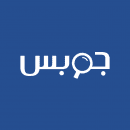Unicef :KAP Study - WASH in schools
الوصف الوظيفي
لقد انتهت صلاحية هذه الوظيفة في 2015-06-15
تصفح أحدث الوظائف
عند التقدم لاية وظيفة عن طريق الانترنت، لا تقم بإعطاء معلومات بطاقة الأعتماد او أية معلومات بنكية / مالية لصاحب عمل. نصيحة من جوبس لحمايتك :
آخر الوظائف المعلنة بواسطة
Jobs.ps Ltd.
المسمى الوظيفي
تاريخ النشر
مندوب مبيعات – كاش فان منطقة الجنوب
الخليل, بيت لحم
10, Jul
Social Media Coordinator/Admin Assistant
رام الله والبيرة
9, Jul
مندوب مبيعات – كاش فان منطقة الجنوب
الخليل, بيت لحم
30, Jun
مروج – منطقة الشمال
نابلس
30, Jun
أمين مخزن
رام الله والبيرة
18, Jun
Marketing Director
نابلس
16, Jun
مدير التدقيق الداخلي
رام الله والبيرة
29, May
Supply Chain Officer
رام الله والبيرة
28, May









